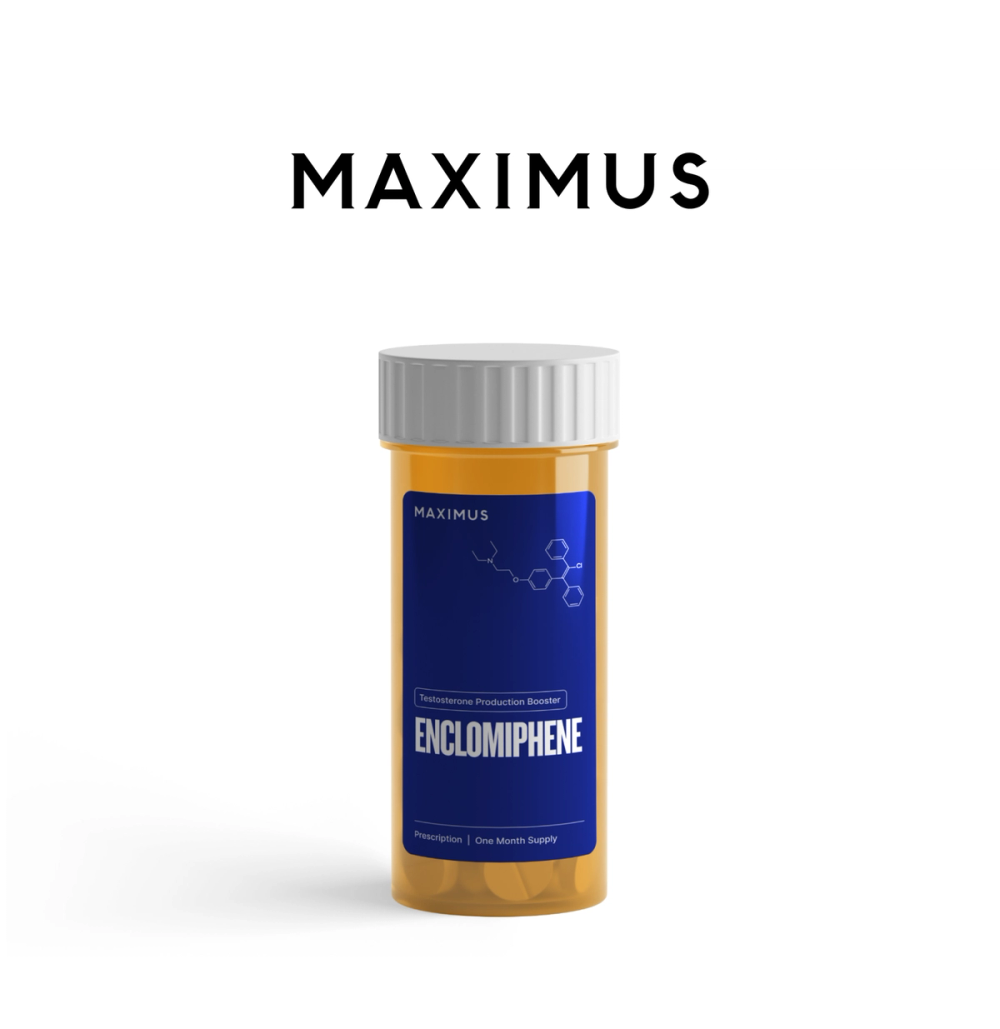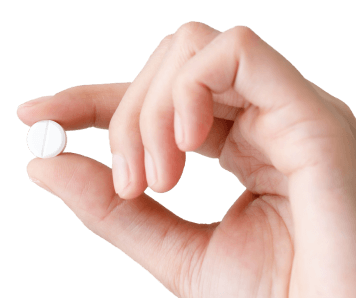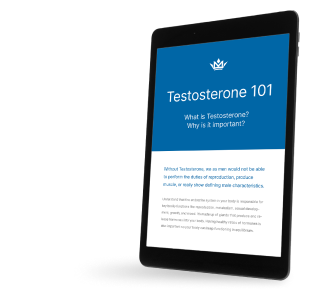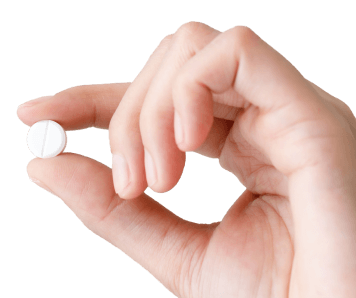Testosterone replacement therapy (TRT) can significantly boost your testosterone (T) levels to improve your mood, energy, sexual function, lean body mass, and overall well-being. But these benefits often come at a cost, with infertility being one of the most severe drawbacks of TRT.
Interestingly, some methods of TRT, specifically oral TRT, appear to be less detrimental to your fertility than others. The research we’ll share below will help you better understand the relationship between TRT and fertility, how oral TRT affects your sperm count and quality.
Does TRT make you infertile?
Does TRT make you sterile? While this study from 2019 refers to TRT generally as a “contraceptive,” digging deeper into the research shows that transdermal and intramuscular testosterone are the strongest contraceptive formulations. The researchers cite one Chinese study, in which azoospermia affected 93% to 98% percent of patients receiving monthly intramuscular testosterone injections over the course of six months of treatment. They also point out why the risk of side effects like infertility tend to be higher with injectable testosterone. Injections produce a variable release of the hormone into the bloodstream, which leads to peaks and troughs beyond the normal range of serum testosterone levels. This not only results in a bigger threat to one’s fertility, but also the user’s mood.
How does TRT impact fertility?
When you supplement testosterone, your body shuts down the hypothalamic-pituitary-gonadal (HPG) axis, and its natural ability to produce its own testosterone. TRT hinders the release of follicle stimulating hormone (FSH) from the pituitary gland, which impairs sperm production, and suppresses the release of luteinizing hormone (LH), which inhibits intra-testicular testosterone production. This suppression leads to low sperm count and quality.
Are the effects of TRT reversible?
There is some evidence that the effects of TRT are reversible, but only to a certain extent. Research shows that stopping TRT has led to the reversal of azoospermia in 64% to 84% of men within 110 days. For some men, it took up to two years to recover. And yet other research suggests that some TRT users might experience permanent low sperm count or no sperm at all following treatment.
Oral TRT and fertility
The most recent oral TRT formulations, which bypass the liver to boost T levels, have been shown to pose less of a risk to fertility. For instance, in a small study, only 1 of 7 volunteers given oral TRT for 10-12 weeks became azoospermic (meaning there’s no sperm in their semen), but the remaining showed either suppressed or unaffected sperm counts. The researchers concluded that this low risk to fertility was the result of testosterone levels only becoming high enough to stop certain reproductive hormones for a few hours after taking the drug.
Different brands may have different effects on fertility
Just as various types of TRT yield diverse outcomes, it's important to note that not all oral TRT formulations function in a uniform manner. The most recent FDA-approved oral TRT medications include Tlando®, Jatenzo®, and Kyzatrex®.
All three medications carry the same black box warning concerning large doses of exogenous androgens; manufacturers state that spermatogenesis may be suppressed, possibly leading to adverse effects on semen parameters including sperm count. They also warn that testicular atrophy, subfertility, and infertility have been reported in men who abuse anabolic androgenic steroids and, in some cases, this impact on fertility may be irreversible. (You can see the black box warnings here for Jatenzo, Tlando, and Kyzatrex).
However, only Kyzatrex offers a reproductive toxicology study that shows the effects on fertility. The animal study found that when untreated female rats mated with males receiving two times the maximum recommended human daily dose Kyzatrex, fewer females became pregnant, fertility was lower, and preimplantation loss was higher compared to the control group. However, researchers noted there was no negative impact on fertility in males who received an equivalent dose of Kyzatrex to the maximum recommended human daily dose. This proves that when prescribed at the right dose, oral TRT like Kyzatrex poses very little threat to the user’s fertility.
Are the effects of oral TRT reversible?
In a 2022 narrative review of different TRT options, researchers pointed out that oral TRT has “easy reversibility,” meaning the effects are reversible when you stop taking it. They also highlighted other benefits of oral TRT like “ease of administration,” “adequate efficacy” and overall “patient satisfaction” similar to other forms of TRT.
In the past, oral TRT consisted of methyltestosterone, which was known to cause significant damage to the liver. Liver toxicity initially produces symptoms like nausea, fatigue, itching, and jaundice. Some studies showed that jaundice and itching can be prolonged even after stopping treatment promptly.
But newer oral TRT formulations are designed to minimize the risk of liver toxicity observed with older options. These formulations are absorbed through the gastrointestinal tract without direct impact on the liver during the initial phase of absorption. Research indicates they do not exhibit the hepatotoxic effects of older oral formulations and may even offer potential benefits for liver health.
Can TRT improve fertility?
While TRT is mostly known for its threat to fertility, there have been instances in which testosterone undecanoate can be helpful. In this study on men with asthenospermia, which refers to reduced sperm motility, which refers to the proper movement of sperm, testosterone undecanoate actually increased motility, leading to a higher incidence of pregnancy in couples with infertility. Compared with the placebo, testosterone undecanoate treatment resulted in pregnancy for 28.2% of couples, while the incidence of pregnancy in the group taking placebo was 11.1%.
However, not all methods of delivery for testosterone undecanoate are equal. When injected, testosterone undecanoate combined with high-dose testosterone injections (specifically testosterone cyproterone) maintains sperm suppression, representing a “promising male contraceptive regimen.”
Key takeaways:
- Testosterone replacement therapy (TRT) can significantly increase your T levels, but it may come with drawbacks, such as infertility.
- Some methods of TRT, especially oral TRT, appear to have a lower impact on fertility, with Kyzatrex posing the smallest threat to a user’s fertility.
Disclaimer: The contents of this article, including, but not limited to, text, graphics, images, and other information, is for information purposes only and does not constitute medical advice. The information contained herein is not a substitute for and should never be relied upon for professional medical advice. The content is not meant to be complete or exhaustive or to be applicable to any specific individual's medical condition. You should consult a licensed healthcare professional before starting any health protocol and seek the advice of your physician or other medical professional if you have questions or concerns about a medical condition. Always talk to your doctor about the risks and benefits of any treatment. Never disregard or delay seeking professional medical advice or treatment because of something you have read on this site. Maximus does not recommend, endorse, or make any representation about the efficacy, appropriateness, or suitability of any specific test, products, procedures, treatments, services, opinions, healthcare providers or other information contained herein. Maximus is not responsible for, nor will they bear any liability for, the content provided herein or any actions or outcomes resulting from or related to its use.








